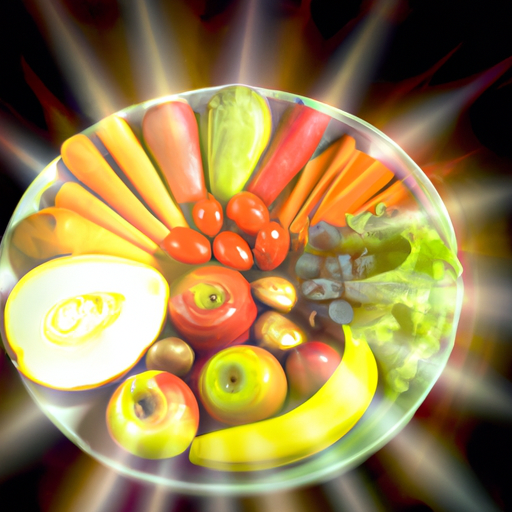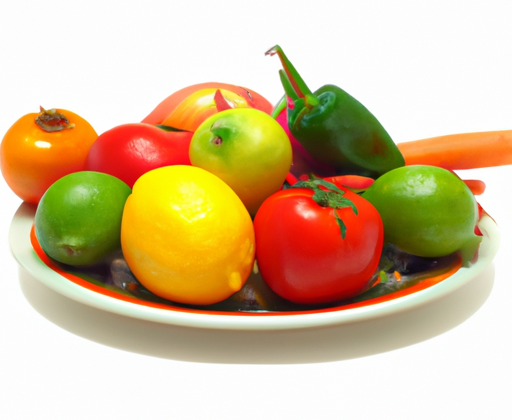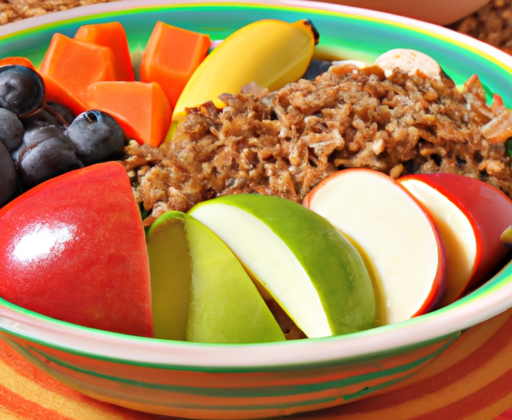When it comes to the food we eat, there’s more to consider than just taste and price. We have an ethical obligation to the environment and society at large. Food ethics consists of the moral principles and considerations that shape our decisions about what and how we consume. It dives deep into animal welfare, sustainable agriculture, corporate responsibility, and other issues in the food industry.
It’s essential to be mindful of the consequences of our choices when it comes to food. That’s why examining our food choices is so important. Mealtime ain’t just a time for chowin’ down – it’s also a time for reflection. What kinds of foods are we buyin’? Where did they come from? And how can we make sure that our decisions are responsible?
This blog will look at these food ethics issues more closely. We’ll discuss what these concepts mean and how we can apply them in our everyday lives. So let’s get started, shall we?
Understanding Food Ethics
When it comes to food ethics, the most important thing to understand is the idea of animal welfare. That means considering things like the conditions in which animals are raised, what they’re fed, and if they have access to medical care. For instance, do animals have enough space to roam freely, or are they cruelly kept in cages? Are they given proper environment enriched with appropriate hiding places, perches and other amenities to stimulate their natural behavior? Another key component of animal welfare is making sure that any animal products used in our food—like livestock, eggs or dairy, for example—are from humane sources.
Sustainable agriculture is another big part of looking at food ethics. This involves planting crops in a way that doesn’t damage the environment, by avoiding methods like over-tilling, which can deplete the soil of nutrients and lead to a lack of crop diversity. It also means selecting pesticides and fertilizers carefully, so as not to harm the local environment or pollute nearby water supplies.

Finally, when it comes to food ethics you need to consider corporate responsibility. This just means looking into whether or not companies are taking active steps to increase their sustainability—such as using renewable energy sources like solar or wind, or committing to reducing their carbon emissions. Additionally, if a company manufactures their products using ethically sourced ingredients, such as from local farmers, then this is an important factor to consider.
Examining Our Own Food Choices
As food ethics and morality become more prominent, it’s important to take a look at our own personal food choices. We should be asking ourselves: what kind of impact are my eating habits having on animals, the environment, and society? How are companies handling the sourcing of ingredients? Am I supporting ethical initiatives with my money? By taking on a critical eye, we can make informed decisions that align with our values.
When it comes to animal welfare, many people have strong opinions about the treatment of livestock or any creatures used in the production process. It’s worth asking questions like, where is this meat coming from? Is the farm cage-free and free range? Are there sustainable methods being used? In addition to considering animal welfare, it’s important to also think about the environmental impacts of our diets. What type of food packaging is being utilized? Is the producer making an effort to reduce food waste and reuse resources?
It’s also important to evaluate the corporate responsibility of the brands and businesses we support. Do they observe fair labor practices? Are they paying workers living wages? Are the producers transparent about their operations, giving consumers the ability to make informed decisions? Asking ourselves these questions can help us make meaningful food choices that affect not only ourselves, but the greater good.
Conclusion
Time to wrap things up here – it’s been a real doozy thinkin’ about food ethics, hasn’t it? Let’s take a few moments to break down what we’ve discussed:
Animal welfare is key when it comes to understanding how our food choices affect the ethical considerations around what we eat. Next up, sustainable agriculture has an important role in maintaining a healthy ecosystem and can help us make more responsible food decisions. And finally, corporate responsibility is essential in making sure that food is produced responsibly and sustainably.
Now that you’ve had your fill of food for thought, let’s keep it movin’. We want to encourage you to continue being mindful of your food choices. Investigate where and how food is sourced – it can be eye-opening! Ask yourself questions like: “Where/whom do I source my food from?” and “What direct and indirect impacts will arise as a result of my consumption?” Think carefully about these before you eat – even if it ain’t the tastiest thing in the world, y’know?
Remember – food morality and ethics isn’t always cut and dry. You won’t be able to get every decision just right, but you can definitely strive to learn more and make the right moves. Just keep at it, and you’ll reap the rewards later on!
Food Ethics FAQ
What are ethical and moral beliefs in food?
In my opinion, ethical and moral beliefs in food are all about taking responsibility for what we consume. It’s about being mindful of the impact our food choices – from where it comes from and how it’s produced to how it’s packaged and disposed of – can have on our environment, our health, and the lives of the people who grow, produce, and deliver it. We all make decisions about what we choose to eat and drink, and it’s important to recognize these choices have far-reaching implications.
When it comes to food ethics and morality, the goal is to promote fairness, environmental consciousness, and respect for everyone involved in the process of food production and consumption. We should strive to choose foods that are organic, locally sourced, sustainably produced, and fairly traded. We should also seek to reduce our consumption of unhealthy processed foods, animal products, and refined sugar. Eating ethically and morally helps us to honor the environment, support the people who bring us our food, and take responsibility for the choices we make about what we consume.
We should also be conscious of how our food choices can benefit or harm other people, animals, and our planet. Eating ethically and morally involves reflecting on the bigger picture: How does our current food system impact the lives of farmers, laborers, and food workers? Are our food choices helping or harming the environment? How can we reduce our food waste and create a more sustainable food system?
Ultimately, ethical and moral beliefs in food involve connecting with ourselves and our choices, honoring the people and the environment that make it all possible, and taking responsibility for our actions. From deciding where to buy our food to understanding the impact our choices have, making ethical and moral food choices can go a long way in creating a healthier and more sustainable world.
Do food choices involve making ethical choices?
Yes, food choices do involve making ethical choices. After all, the food we choose to consume and how we consume it has an impact on not just our health, but also on the planet. Our choices reflect our beliefs and values, and can help shape the world into a better place.
It’s easy to see why making ethical food choices is a necessity. Not only do our decisions have an effect on our own health, but they can also affect the environment, the workers in the industry, and the animals.
When it comes to making ethical food choices, the most important thing to consider is where the food is coming from. Buying local, organic, and sustainable food is a great way to ensure that your food isn’t harming the environment. Additionally, supporting small farms and businesses can help create a more equitable food system, and even drive down prices.
It’s also important to be mindful of animal welfare. If you choose to consume animal products, look for labels that certify humane and sustainable practices, such as cage-free eggs, free-range meat, or grass-fed beef.
Finally, it’s essential to consider how our decisions impact workers in the food industry. When possible, purchase from companies that are transparent about how they treat their workers and provide them with fair wages and safe working conditions.
In conclusion, making ethical food choices is an obligation that we have to ourselves and the world. Researching where our food comes from, considering animal welfare, and supporting fair labor practices are just some of the basic steps we can take to make a difference.
What is food morality?
Food morality, put simply, is the decision making process we all go through when it comes to food. It is the ability to discern between what is right and wrong when it comes to the food we eat, based on our own tastes, values, and beliefs. It is a complex issue, as food is closely tied to our cultures and societies, and there is often a lot of debate over what constitutes ‘ethical’ eating. Factors such as environmental impact, animal welfare, world hunger, sustainability, and human health are all considerations when it comes to deciding what is ‘right’ or ‘wrong’ in regards to food. Food morality isn’t just about creating a list of ‘do’s and don’ts’ when it comes to what we eat. It’s about understanding our own values and preferences, and recognizing and respecting the values of others. It’s about being mindful of the choices we make and considering the consequences for ourselves, our friends and family, our communities and our planet. It’s also about understanding the system that supports the food industry and embracing the power we have to make informed and responsible choices. Ultimately, it is up to each of us to make conscious and informed decisions regarding what we eat, and to respect our own beliefs, as well as that of others.

